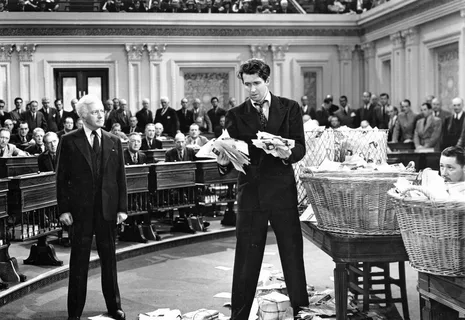
Matthew Perry: What Does it Profit a Man . . . .
The recent death and sad life of megastar Matthew Perry at 54 is a tale many of us can learn from. Unfortunately, most will learn the wrong lessons. Some will conclude that fame and wealth are bad things in and of themselves. They are not. They can be a huge blessing depending on the person. Others will see fame and wealth having destroyed Mr. Perry. There is some truth to that because he obviously couldn’t handle it, but no external circumstances cause anything. Almost four decades ago when I started my theological journey with Charles Hodge’s Systematic Theology, I learned something about money I had never considered. After all, I was only 24 at the time. Money, he said, is a reflection of character, it reveals who we really are, and it also allows us to develop better character as we earn more of it. That, of course, depends on our character, who we are (this article about his parent’s divorce is instructive why he was who he was). Those lacking good character, for whatever reasons, will tend to be corrupted by having considerably more money than required to meet their daily needs. Unfortunately, this seems to have been the case with Matthew Perry. I am not at any point addressing his eternal destiny, although the verse in my title always tends to be interpreted that way.
The Christian Understanding of Wealth
God declares that “wealth and honor” comes from Him (I Chron. 29). Fame is a kind of honor, but a distinctly modern phenomenon. Whenever we attain wealth and honor, or fame, we are confronted with a question: What are we going to do with it? Jesus put the rhetorical question this way:
For what does it profit a man to gain the whole world and forfeit his soul?
Matthew Perry would have said, none at all. It destroyed him. But wealth (i.e., money and what it can buy) is an unqualified good in Scripture. You can’t get more unqualified than this (Deuteronomy 8):
17 You may say to yourself, “My power and the strength of my hands have produced this wealth for me.” 18 But remember the Lord your God, for it is he who gives you the ability to produce wealth, and so confirms his covenant, which he swore to your ancestors, as it is today.
But like any good, it can be perverted by sinners who don’t acknowledge it comes from Him.
As I argued recently, God wants to bless us. I would encourage you to read Deuteronomy 8 to see how this wealth-creating ability granted by God is in direct correlation to our obedience to Him. In other words, material blessing is baked into the salvific cake of God’s relationship to His people. This is sadly misunderstood by many Christians today, partly because we over spiritualize everything, and also mistakenly judge God’s good creation by those who abuse it. (This is one reason, lamentably in my opinion, that almost all Evangelical churches serve only grape juice during Communion.)
Think about it. When you encourage and exhort your children to obey you, and punish them when necessary if they don’t, do you expect the outcome in their daily lives to be good? Do you not want them to flourish and thrive in this life? Of course you do. You specifically do those things because you want your children to have a better life, not a worse one. Why would it be any different with God and his people? It isn’t! Jesus confirms the analogy to our heavenly Father in Matthew 7:11:
If you, then, though you are evil, know how to give good gifts to your children, how much more will your Father in heaven give good gifts to those who ask him!
Yes, I know, life is “unfair,” and material blessing is not in the cards for some people. Just think about what appears to us the lottery of where someone is born. Nonetheless, the blessings of obedience to God, even trusting his goodness and love in suffering, always lead to a spiritual flourishing in our relationship to Him that cannot be determined by our circumstances. Not to mention, we are going to live forever with God in a resurrected body on a new heavens and earth!
Dualism and the Soul
In our tendency to over spiritualize is a kind of dualism, material/spiritual, earthly/heavenly, temporal/eternal. I want to suggest that we cannot neatly separate those, not in the least. That separating came as a result of the fall and man’s rebellion, and Jesus came to earth to bring them together, not further separate them. Let’s put it this way:
- The material is the spiritual, and the spiritual is the material.
- The earthly is heavenly, and the heavenly is the earthly.
- The temporal is the eternal, and the eternal is the temporal.
There are many reasons we don’t think this way, but I believe ancient Greek dualistic assumptions are a primary cause. We can’t explore that here, but instead of seeing life fully integrated and wholistic in the omnipresent life of God, there are sharp distinctions like this in our minds.
Because we do this we automatically see the reference to losing or gaining souls as Jesus talking about going to heaven or hell. I don’t think he is. That’s an implication, but it’s much bigger than that. This dualism makes us think we are made up of two substances, body and soul, and when we die our soul goes to heaven to wait for our resurrected body. That could be true and I tend to believe that, but we can’t be sure. The New Testament only gives us the barest hints that it is, but ancient Hebrews and Jews of Jesus’ day as well, didn’t think this way.
So, what did Jesus and the first Jewish Christians mean by the word soul? I’m convinced it had a much more earthy, this life meaning, more Hebrew than Greek. The Greek influence in early Christian thinking came in the centuries that followed as the church slowly became increasingly Gentile. Certainly the Greek thought influenced how Jews saw the world given that the process of Hellenization (the influence of Greek culture) started when Alexander the Great conquered Judea over 300 years before Christ, but it would not change the fundamental character of Jewish thought. So instead of seeing what Jesus said dualistically, let’s look at it as a first century Hebrew/Jew might.
What is the Soul Biblically Speaking
The Greek word soul, psuché-ψυχή, is where we get our word psychology. The English automatically brings in the Greek dualistic assumptions by its meaning of mind, that our psyche is about what and how we think and why. That’s helpful to learn and understand, but it’s too narrow. Let’s see what the biblical ancient Greek meaning was according to Strong’s:
Usage: (a) the vital breath, breath of life, (b) the human soul, (c) the soul as the seat of affections and will, (d) the self, (e) a human person, an individual.
Further:
5590 psyxḗ (from psyxō, “to breathe, blow” which is the root of the English words “psyche,” “psychology”) – soul (psyche); a person’s distinct identity (unique personhood), i.e. individual personality.
5590 (psyxē) corresponds exactly to the OT 5315 /phágō (“soul”). The soul is the direct aftermath of God breathing (blowing) His gift of life into a person, making them an ensouled being.
This broad understanding of the word is critically important to understand if we’re to escape from the prison (chains) of dualism. Notice especially that soul is the unique identity of a person, their one of a kind personhood, who they are. That includes their body as much as everything that goes on inside them. It includes this life and the life to come.
I know this is heavy philosophy stuff, but bear with me. Even though I am probably a dualist, meaning I think we are body and soul, two distinct entities, I am also a monist in that I believe the two are inextricably bound to one another. Unfortunately, a very real separation occurred between the two, between us, who we are, our soul and our bodies, when mankind crashed and burned in the fall. It is helpful to understand the Apostle Paul’s theological perspective of the human body. He uses the word in Greek, sarx- σάρξ, over sixty times. It is a foundational part of his anthropology, or his understanding of the nature of man (anthropos in Greek). It is the principle of sin that inheres in us, in who we are. Not being a Greek dualist, Paul isn’t saying the flesh, our bodies are sinful and evil, but a principle of rebellion against God is part of who we are. We could say our souls, who we are, is infected with this sin principle.
I won’t go any deeper into this, but the point is that this sin principle ruins everything it touches in this life. The implications are not only eternal. All Christians know this, but given our Greek dualistic assumptions we’re always thinking eternal consequences are more important. Of course they are because, well, they are forever, and that’s a long time! But God is every bit as concerned with this life, with who we are in terms of who we are becoming, and the material implications for here and now. I encourage you to read Deuteronomy 8 and Deuteronomy 11 where Moses lays out the blessings for obedience to God, and the opposite if we don’t. Despite what many Christians think, this was not just for Israel. He’s built his law into creation such that our relationship to him has real, substantive, material consequences one way or the other.
Christians sometimes have a hard time with this line of thinking as I used to because I thought of it like a kind of “prosperity gospel” position. I think Britannica defines this well in case you’re not familiar with the phrase:
It is also referred to as the “health and wealth gospel” or “name it and claim it.” Central to this teaching are the beliefs that salvation through Jesus Christ includes liberation from not only death and eternal damnation but also poverty, sickness, and other ills.
Well, it does! But there is nothing magical about this like I used to think. We are saved from sin unto good works. It is only in obedience to God’s law that he can bless us because that’s the way he made things to work! If we live our lives in obedience to the Ten Commandments the best we can, our lives will turn out a whole lot better than if we don’t.
Matthew Perry Loses His Soul
Unfortunately, Matthew Perry didn’t obey the ten commandments. As I said above, I can’t speak to the eternal aspect of his soul, but he clearly lost it in this life. Wanting the entire world, so to speak, apart from God, he got it. He lost his soul in the process, and his life for good at the young age of 54. His mistake was thinking something like the fame he craved could ultimately fulfill him, but he likely responded as many people do when they get it: is that all there is? As I’ve heard it said, idolatry is turning good things into ultimate things. Making an idol of fame, which drives so many in our secular culture, is a recipe for disaster. How that plays out in each individual’s life who achieves it depends on the person. For some who don’t place their ultimate worth in the idol, they can deal with it in a way that brings wisdom. Even at that, it is not easy.
We are in the middle of fascinating documentaries about two men, and one woman, who achieved massive wealth and fame and came out the other side better people through the pain and struggle that comes along with such success. One is about soccer superstar David Beckham (and his Spice Girl wife), and the other is Rocky, Sylvester Stallone, both on Netflix. Like Perry, they had their dreams come true beyond their wildest imaginations, and struggled to come to terms with it. It’s interesting to see the young Beckham with no tattoos, and the now 48 year-old with a bunch of them. To me those are a reflection of the struggle. He seems, though, to be a genuinely good bloke, as the Brits would say. Stallone too seems to have come out the other side a better human being.
What this means for their eternal soul we don’t know, but ultimately that’s the only thing that counts.





Recent Comments